Our Services
How we bring hope to the African child
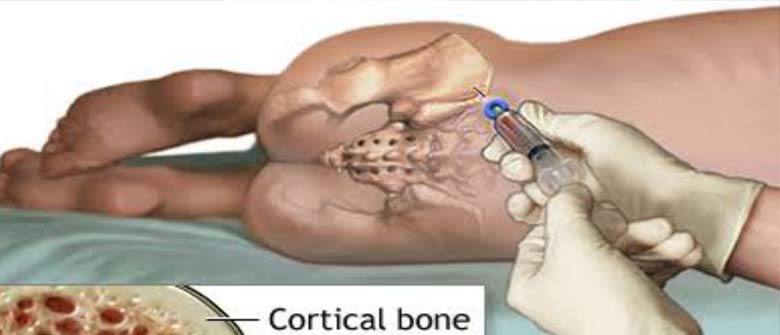
Bone Marrow Transplant

Genetic Counselling Service
We deliver genetic counseling at the National Sickle Cell Centre and in Sickle Cell Clinics and Sickle Cell Clubs with trained personnel – volunteer or paid staff. Prior appointments are necessary and sponsors are required to enable us to expand and sustain this essential service.

Clinical Services
Improving the standard of health care of persons with sickle cell disorder
With donors’ support, we supervise the running of Sickle Cell Clinics including the free provision of drugs and some equipment in a few States in Nigeria. More States will be added when financial provision permits. Already, these clinics have recorded improvement in the quality of lives and death rates
among their patients.
The goal of this intervention is to demonstrate to the host State Governments, the beneficial impact of Sickle Cell Clinics on the lives of affected persons and hopefully, encourage them to take over the running of the Clinics and expand their coverage within the State.
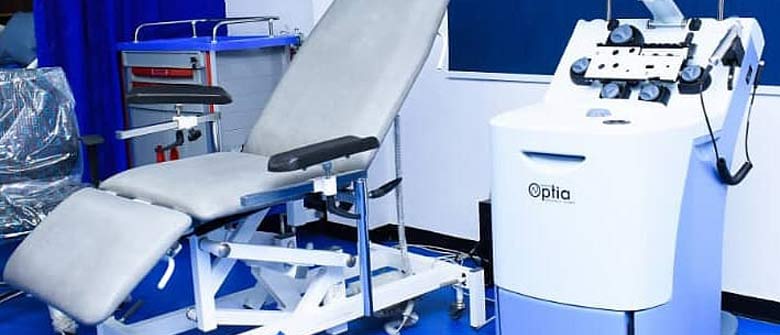
Exchange Blood Transfusion (EBT)

Prenatal Diagnosis
Couples for whom there is a real possibility of bearing children with sickle cell anemia are able to find out the hemoglobin genotypes of their unborn child in early pregnancy. Thus, timely and adequate information, support, and counseling can be provided. This service, which should be equitably available is currently sustained by fees paid by the few clients who can afford them. Sponsorship is required to make it accessible to all eligible Nigerians and extend its scope through training to other parts of the country.
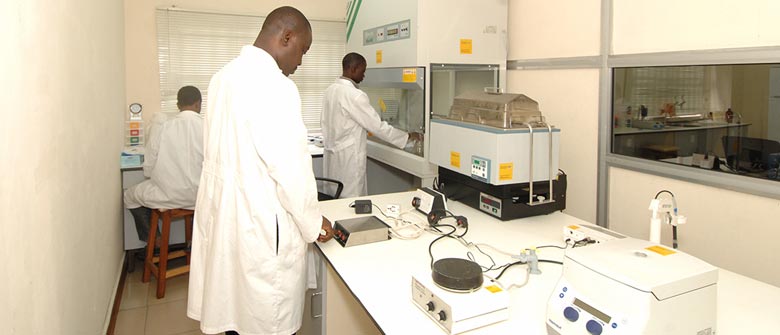
Research
Research is central to progress in all aspects of SCD. Some research projects are ongoing and plans for extensive molecular, pathological, clinical, and operational research on SCD are being made. We look forward to adequate funding for qualitative research training and performance in Nigeria.
Library and Information Technology Unit
This will be essential to research, health education, networking and other programmes
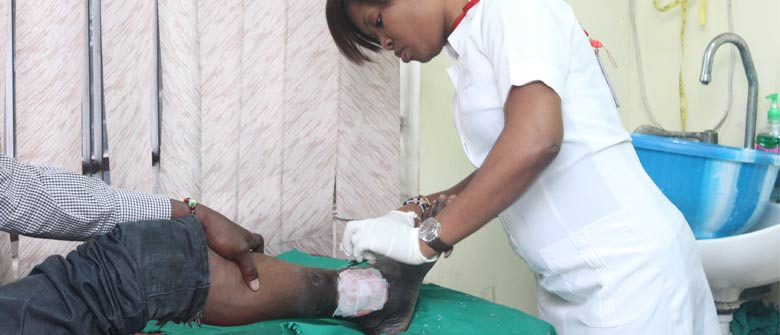
Leg Ulceration Treatment
Leg ulceration is one of the chronic complications of sickle cell disorder occurring in one ankle or both. They are often painful, difficult to treat, and impair leading normal lives. The incidence of leg ulceration among people living with sickle cell anemia in West Africa is 6-7%.
Leg ulcers mostly affect people between 15-35 years. Leg ulcer treatment service is available at the Centre and affected persons can avail themselves of the treatment regime which has been tried and found to heal the ulcer faster.
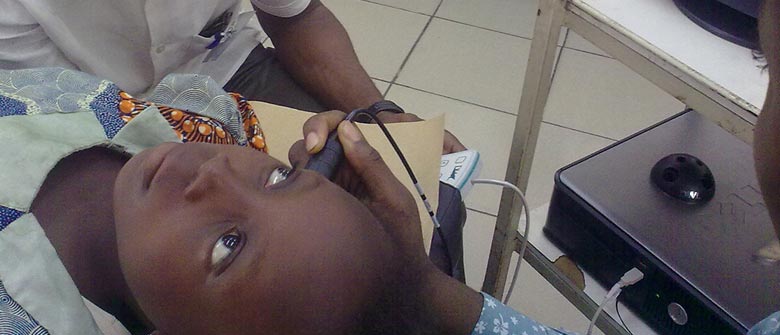
Transcranial Doppler Ultrasound
Research has shown that about 1 in 14 children with sickle cell anemia have a high risk of developing strokes (overt or silent). This debilitating complication can impede their mobility and/or impair their intellectual ability. However, stroke can be prevented, if children at risk of developing it can be identified.
With Transcranial Doppler (TCD) ultrasound scan, we can identify children at risk and hence prevent strokes. Children aged 2 – 16 years are most vulnerable and are hence invited to benefit from this procedure on Mondays to Fridays.

Capacity Building
The Foundation organizes capacity building training programmes regularly for different cadres of health care workers and other stakeholders. The training courses include:
- Genetic counseling training courses.
- Update seminars on the treatment of sickle cell disorder.
- Training workshops on the laboratory diagnosis of sickle cell and related disorders.
- Training of a cadre of Sickle Cell Specialist Nurses.
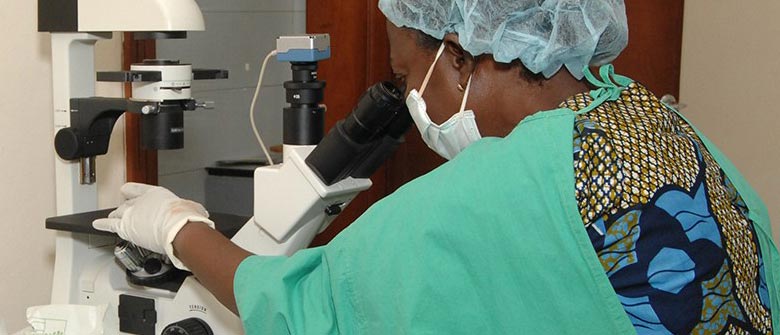
Laboratory Services
The four laboratories in the NSCC provides state-of-the-art laboratory services to make straightforward or difficult diagnoses accurately and support training workshops and research studies. The Unit should be capable of serving as a reference diagnostic laboratory, not only for Nigeria, but also for neighbouring countries. Equipment for the four laboratories is still being assembled and sponsorship is required for capital, training, personnel and other running costs.

Advocacy, Information, Education & Communication
Creating awareness about sickle cell disorder is a fundamental part of the foundation’s work. We do this – inter alia – through public lectures, symposia, radio and television presentations, publications in the print media, information leaflets/pamphlets, audio-visual materials and our quarterly bulletin.

External Relations Unit
To foster new partnerships, maintain existing relationships and help create sustainable funding for our programmes.
Provision of Welfare Services to affected persons
Persons affected with SCD are particularly vulnerable to the inadequate welfare support infrastructure in the country. The following areas have been identified as deserving of welfare support.
- Medical treatment subsidy for the needy
- Educational grants
- Job skills training
- Business enterprise support
The Nigerian Sickle Cell Expert Advisory Committee (NISEAC)
This committee of the Sickle Cell Foundation Nigeria was set up to examine all matters related to sickle cell disorder and the standard of service to be delivered to save as well as improve the quality of lives of those affected. The Committee presently has about 30 members spread across the 6 geo-political zones in Nigeria. At its first meeting, the committee arrived at decisions and recommendations summarised hereunder.
- The Federal and State Governments as well as the organised private sector in Nigeria and the International Aid Agencies should urgently allocate funds annually for financing appropriate training, service, and research programmes to seriously address sickle cell disorder.
- The Federal and State Governments, should introduce newborn or infant screening for the early diagnosis of sickle cell disorder in Nigeria.
- Prophylactic anti-infective measures against pneumococcal, meningococcal and other prevalent bacteria should be freely provided to infants and children with sickle cell anaemia in order to reduce the high death and illness rates caused by these infections.
- Adequate safe blood for transfusion should be provided in all States of the Nigerian Federation to save and support lives.
- The training and recognition of a cadre of Sickle Cell Nurse Specialists should be introduced in order to improve our capacity to deliver better health care and education coverage to affected individuals and families.
- Serious concern that numerous drugs are freely marketed in Nigeria with unproven claims of curative or palliative properties in the treatment of sickle cell disorder.
